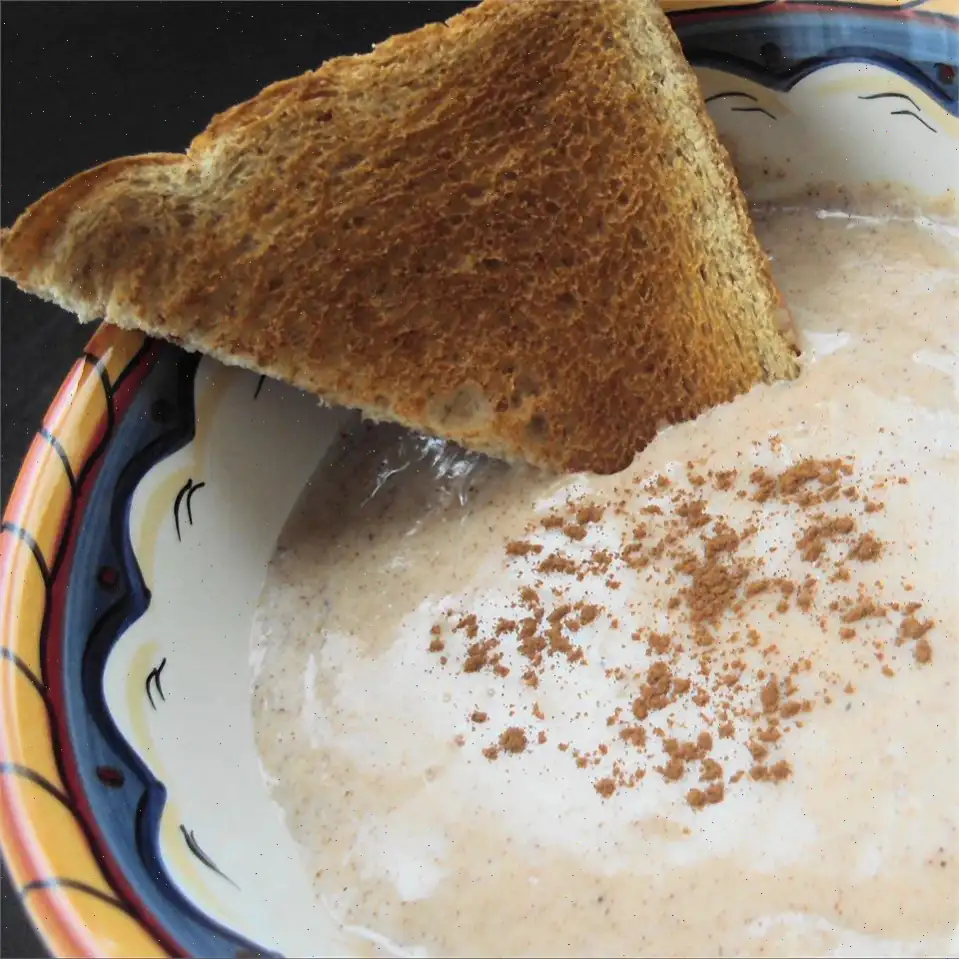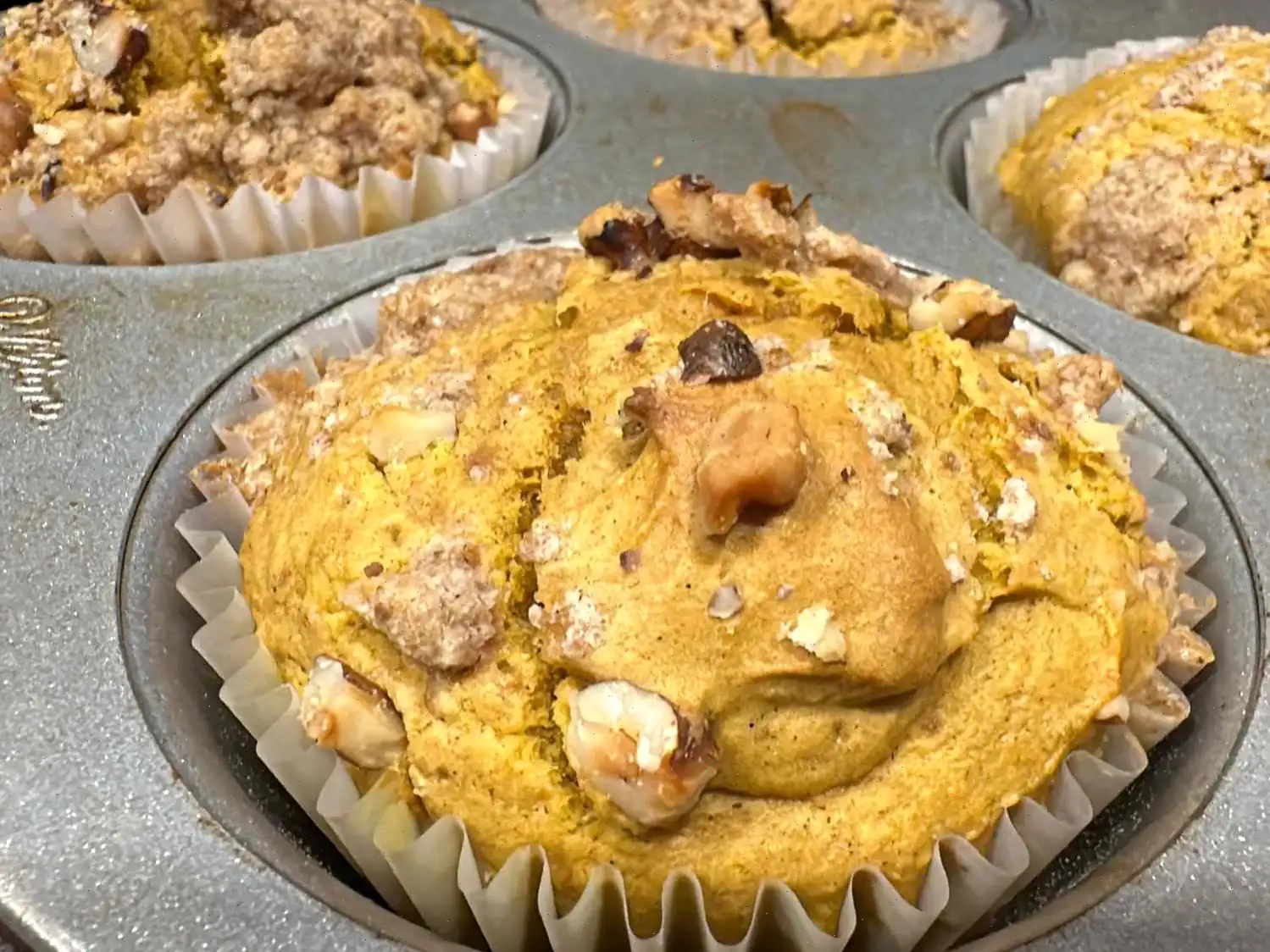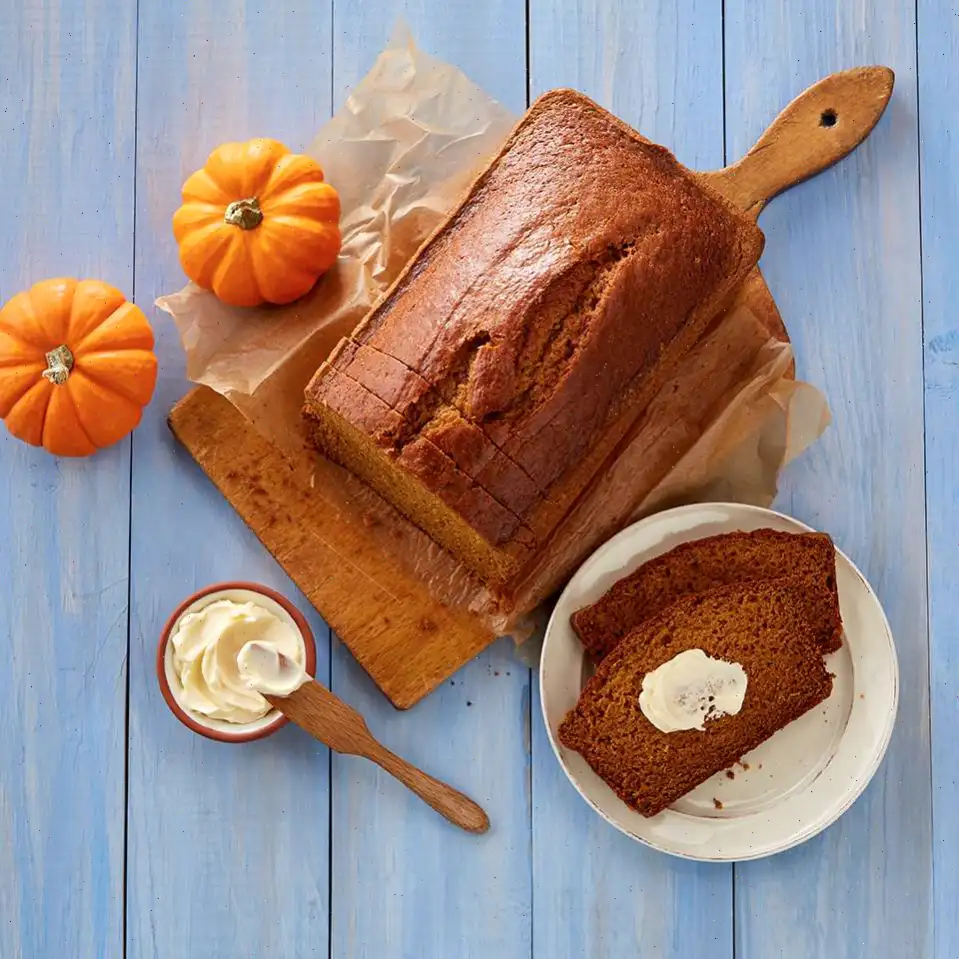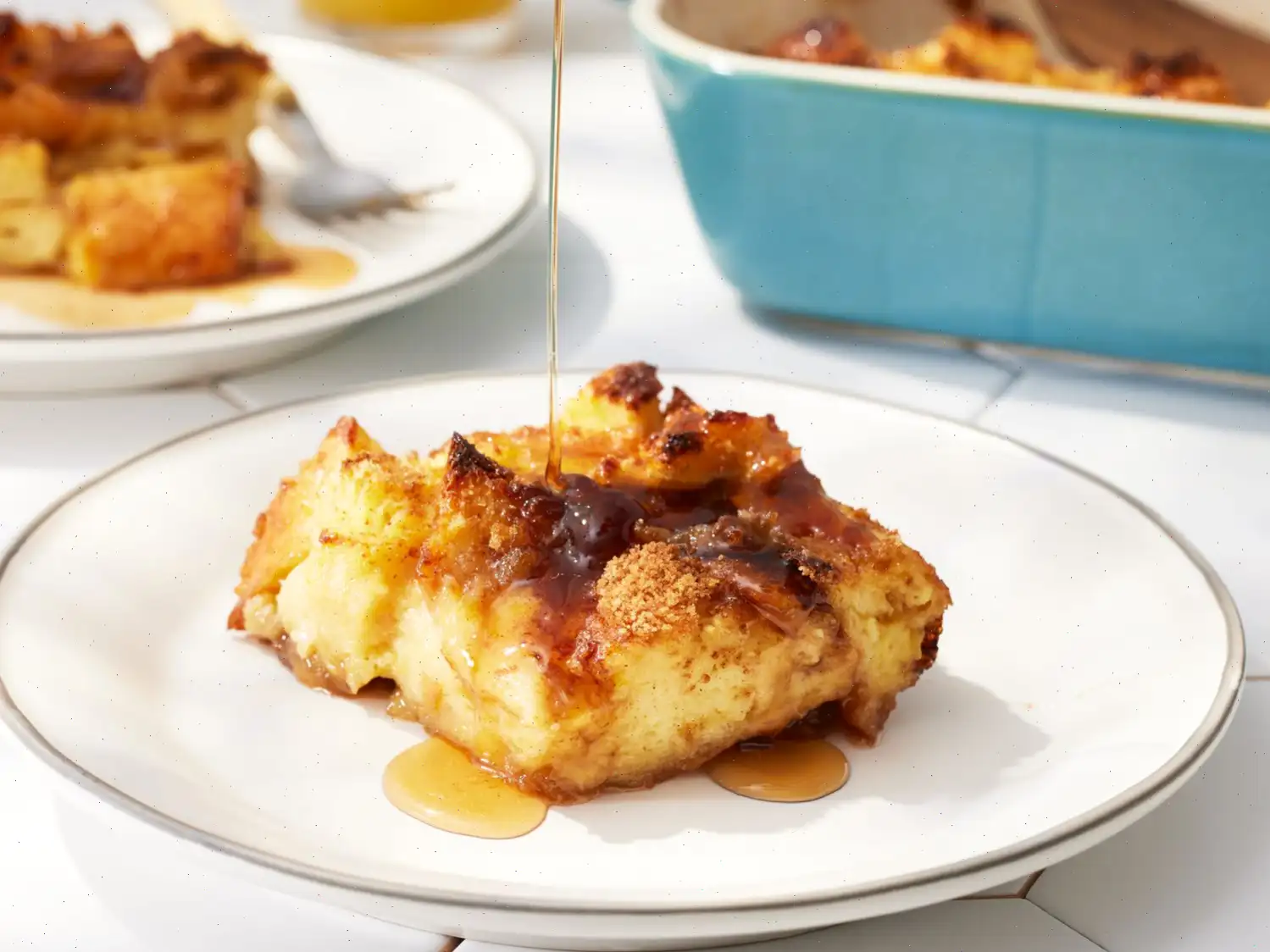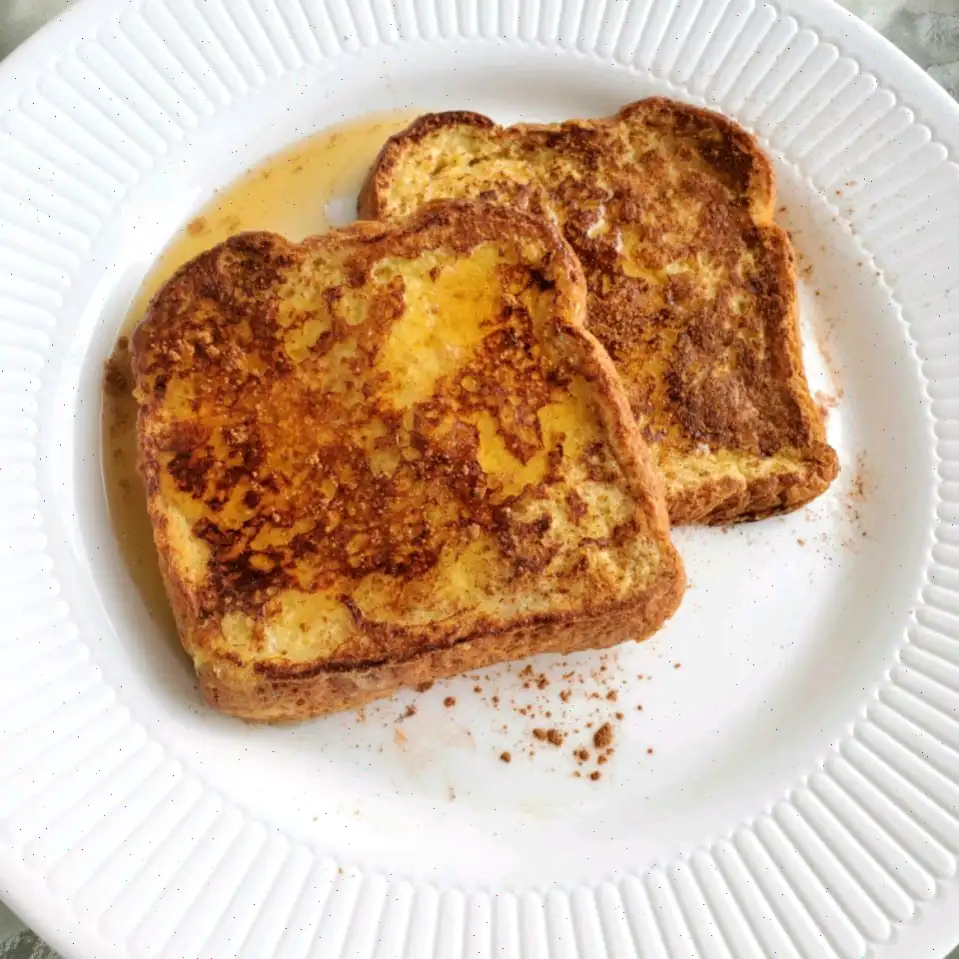
Puerto Rican Breakfast Custard Recipe
Ingredients
- 3 tablespoons white sugar
- 2 tablespoons cornstarch
- 1 teaspoon salt
- 1 teaspoon ground cinnamon
- 2 cups whole milk
Directions
- In a large saucepan, whisk together sugar, cornstarch, salt, and cinnamon.
- Slowly stir in the milk until the mixture is evenly blended.
- Place the saucepan over medium-high heat. Continuously whisk the mixture to avoid burning or clumping, cooking for 25 to 30 minutes, until the custard thickens to a smooth consistency.
- Once the custard has thickened, remove it from the heat. It will continue to thicken slightly as it cools.
- Divide the custard evenly between bowls and serve.
Nutrition Facts (per serving)
| Calories | 250 |
| Total Fat | 8g (10% Daily Value) |
| Saturated Fat | 5g (23% Daily Value) |
| Cholesterol | 24mg (8% Daily Value) |
| Sodium | 244mg (11% Daily Value) |
| Total Carbohydrate | 37g (14% Daily Value) |
| Dietary Fiber | 0g (0% Daily Value) |
| Total Sugars | 30g |
| Protein | 8g (16% Daily Value) |
| Calcium | 278mg (21% Daily Value) |
| Iron | 0mg (1% Daily Value) |
| Potassium | 350mg (7% Daily Value) |
Note: Percent Daily Values are based on a 2,000 calorie diet. Your daily values may be higher or lower depending on your calorie needs.
Puerto Rican Breakfast Custard, or "Maizena," is a beloved dish in Puerto Rican households, particularly as a breakfast treat. This simple yet comforting dessert-like custard is made with just a few ingredients: milk, cornstarch, sugar, salt, and a dash of cinnamon. Despite its humble nature, the Puerto Rican breakfast custard holds a special place in the hearts of many who grew up with its creamy, smooth texture and rich flavor. But where does this delicious custard come from, and why is it so beloved? Lets dive into its history, regional variations, and its unique charm.
History and Origin of Puerto Rican Breakfast Custard
The roots of Puerto Rican Breakfast Custard can be traced back to the Spanish influence on the islands culinary traditions. As with many Caribbean dishes, the Spanish colonization brought with it a variety of ingredients and cooking methods that merged with indigenous and African culinary practices. This custard is reminiscent of a classic Spanish dessert called "Natillas," which is a similar pudding made with milk, sugar, and eggs. Over time, the Puerto Rican version evolved, substituting cornstarch for eggs to create a smoother and lighter custard.
Regional Features and Variations
Puerto Rican Breakfast Custard is typically enjoyed in the mornings, but it can be eaten at any time of day. While the basic recipe remains the same, there are several regional variations. Some cooks add vanilla extract, while others may incorporate coconut milk, which adds a tropical flair to the dish. Additionally, spices such as cinnamon or nutmeg can be sprinkled on top to enhance its flavor. In some households, a dollop of whipped cream or a sprinkle of grated coconut finishes off the custard, creating a delightful texture contrast.
How Does it Differ from Similar Dishes?
At first glance, Puerto Rican Breakfast Custard might seem similar to other Caribbean puddings, but it has its own distinctive qualities. Unlike the traditional American-style custards, which often use eggs as a base, Puerto Rican Maizena relies solely on cornstarch to achieve its thick consistency. This not only makes it quicker to prepare but also gives it a lighter texture. Furthermore, Puerto Rican custard typically has a mild sweetness, making it less rich and more suitable as a breakfast dish. It is also commonly served warm, unlike many Western custards that are often served chilled.
Where is Puerto Rican Breakfast Custard Typically Served?
This dish is a staple in Puerto Rican households, often enjoyed at breakfast or as an afternoon snack. It is also commonly served during family gatherings or celebrations, where it evokes a sense of nostalgia and comfort. In Puerto Rico, it's not unusual to find this custard being paired with bread or crackers, creating a perfect balance between the creamy custard and the crispy, neutral bread. It's a dish that's often passed down through generations, keeping the flavors of the island alive in every spoonful.
Interesting Facts About Puerto Rican Breakfast Custard
1. The name "Maizena" refers to the brand of cornstarch that is commonly used to make this custard. The term has become synonymous with the dish itself, similar to how "Kleenex" is used to describe facial tissues.
2. While the dish is called a "custard," it does not contain eggs, setting it apart from traditional custards found in other cultures.
3. This breakfast treat is not only delicious but also a part of many Puerto Ricans' childhood memories. Many people who were raised in Puerto Rico recall the scent of Maizena cooking on the stove in their homes.
4. Puerto Rican Breakfast Custard is incredibly versatile and can be made with dairy-free alternatives such as almond milk or coconut milk, making it accessible to those with dietary restrictions.
Conclusion
Puerto Rican Breakfast Custard is more than just a dish; its a cultural staple that carries with it memories of family and tradition. With its simple ingredients and comforting texture, it has stood the test of time as a beloved Puerto Rican breakfast. Whether you enjoy it as it is or with added toppings, this warm custard is sure to bring a taste of Puerto Rico into your kitchen.
FAQ about Puerto Rican Breakfast Custard Recipe
Comments
Nathan Allen
04/23/2025 07:55:57 AM
Here is the revised review: For an even tastier and creamier result, try adding 1 egg yolk whipped separately in a cup with some sugar until it becomes fluffy and light-yellow in color. Mix in 1 tsp. of vanilla and 1 tsp. of cinnamon, ensuring it's well blended. Slowly incorporate the milk (evaporated milk is a suitable alternative to whole milk) into the egg mixture, stirring thoroughly. Blend in cornstarch to the egg and milk mixture, making sure all lumps are dissolved before transferring to a saucepan. Gradually add the remaining milk and sugar to the saucepan while stirring constantly. Remember, adding salt is optional and not necessary.
Justin Jackson
02/14/2023 10:37:26 PM
Delicious!! This recipe is fantastic as is, but I enjoy adding 1 cup of oatmeal to make it more substantial and suitable for a hearty breakfast. I blend the oats in my blender and include an extra 2 cups of liquid, sometimes more to create a drinkable oatmeal that's perfect for those busy mornings! No additional cornstarch is required, just stir until it slightly thickens, then remove from the heat. It will continue to thicken as it cools. For a twist in flavor, I've experimented with coconut milk and cream of coconut, and it turns out extra delicious! I've also tried making it with almond milk or a combination of almond and coconut milk for a lactose-free option, and it tastes just as good as using regular milk or evaporated milk. Being from Puerto Rico, this recipe holds a special place in my heart as it brings my mother back to her childhood. It's a nostalgic dish that reminds her of lost recipes, and she appreciates it every time I make it for her. Thank you for this wonderful recipe!
Andrew Roberts
07/26/2024 06:32:08 PM
Amazing recipe! Absolutely delicious. As a Puerto Rican raised in Florida, this dish brings back memories of my mother and grandmother's cooking. This recipe is spot on and incredibly satisfying. To enhance the protein content, I scrambled 3 eggs and mixed them with milk to equal 2 cups of liquid, adding a touch of vanilla - it turned out perfect! Creamy, filling, and just the right amount of sweetness. Don't hesitate to add eggs for extra richness. Yumm Yumm!
Patrick Garcia
04/09/2025 12:53:28 AM
Fantastic Recipe! To avoid lumpy custard when adding cornstarch, I recommend placing it in a small separate bowl, pouring in some milk, and whisking with a fork until smooth. This method guarantees a consistently velvety custard. I also incorporated chopped Granny Apples and a sprinkle of oatmeal—delicious addition!
Ronald Nguyen
08/13/2024 12:51:47 PM
This dish turned out amazing! I included 3 eggs and added just the right amount of milk to make up the 2 cups of liquid required. It thickened much quicker than expected. I used day-old cornbread, warmed it up in the microwave with some butter, and paired it with the custard. The result was absolutely delightful!
Anthony Anderson
12/05/2022 03:46:42 AM
I prepare this recipe frequently. I reduce the sugar to 2 tablespoons and occasionally add vanilla or honey for extra flavor.
Samantha Sanchez
04/03/2025 05:44:38 PM
I'm so happy I came across this recipe - it turns out I had been using too much cornstarch in my own version. This recipe is absolutely fantastic and reminds me of the flavors I grew up with in my Puerto Rican household. I made a few tweaks to make this "Maizena" (as we call it in my family) just like the one I remember - adding a tablespoon of butter for extra creaminess, and swapping out 2 cups of milk for 1 1/2 cups of milk and 1/2 cup of coconut milk. The subtle hint of coconut really takes it to the next level and brings back all those childhood memories! So yummy!
Jason Walker
05/06/2024 03:59:38 AM
I am from Puerto Rico and I make this recipe frequently, especially for my little one, who absolutely loves it! The only variation I make is using evaporated milk and adding a hint of vanilla extract.
Maria Thompson
10/23/2022 06:36:59 AM
I followed the recipe instructions precisely the first time, and the dish turned out delicious. However, waiting 20-30 minutes was a bit too long for me. The second time around, I took the advice of some and added an egg, and it was done in about 15 minutes. I was happy with that result, and the taste was still very close to the original. This dish even brought back memories for my husband and brother-in-law of when their mother used to make it for them as children on the island of Puerto Rico. Thank you for the nostalgic reminder.
Amanda Wright
01/20/2024 10:25:37 AM
Review Rewritten: I was pleasantly surprised by how rich and creamy this dish turned out to be. The texture was absolutely amazing. Following the advice of other reviewers, I added an egg, and it really enhanced the flavor. I can't wait to make this recipe again and again. Delicious!
Nicholas Baker
10/11/2022 04:20:14 PM
This recipe was delicious, but the maizena thickened quicker than expected. I recommend stirring it for about 15 minutes instead of 25 to 30 minutes as specified - that's a bit too long.
Scott Diaz
03/26/2024 12:20:56 PM
Excellent product that brings back memories of my childhood. I substituted white sugar with turbinado sugar and regular cow's milk with goat's milk, and the result was awesome.
Jeffrey Wright
05/05/2023 03:18:39 AM
Since I am lactose intolerant, I prepared it with almond milk and it was equally delicious.
Paul Adams
08/29/2024 04:15:51 PM
Fantastic and simple recipe! Definitely worth the time investment. Absolutely delicious.
Joseph Allen
11/19/2023 12:48:02 PM
This recipe was fantastic, but Maizena thickens quickly, so I recommend stirring for about 15 minutes instead of 25 to 30. Overall, a delicious dish with a quick thickening agent!
Rachel Campbell
07/06/2023 07:13:04 AM
Delicious! I enhanced it with an egg yolk, vanilla extract, and it turned out absolutely magnificent...
Richard Adams
11/21/2022 10:50:57 PM
Tastes great, just like my mother-in-law's cooking.
Carolyn White
12/13/2024 01:37:36 PM
I absolutely adore this Maizena recipe! It's absolutely perfect! It brings back memories of when my mom would make it for me. The flavor is spot-on and I managed to achieve the perfect consistency by simmering it for an extra minute. I appreciate being able to customize the recipe based on the number of servings needed. Thank you for sharing this wonderful recipe.
Diane Johnson
11/13/2024 09:32:09 PM
Exactly like grandma used to make, but with a special touch - a piece of lemon rind in the pot. She made sure it ended up in my bowl because she knew how much I loved it.
Linda Young
03/19/2023 09:30:09 AM
This dish was very tasty. However, the portion size was smaller than expected – it doesn't quite serve two people. Next time, I'll make double the amount of the recipe.


